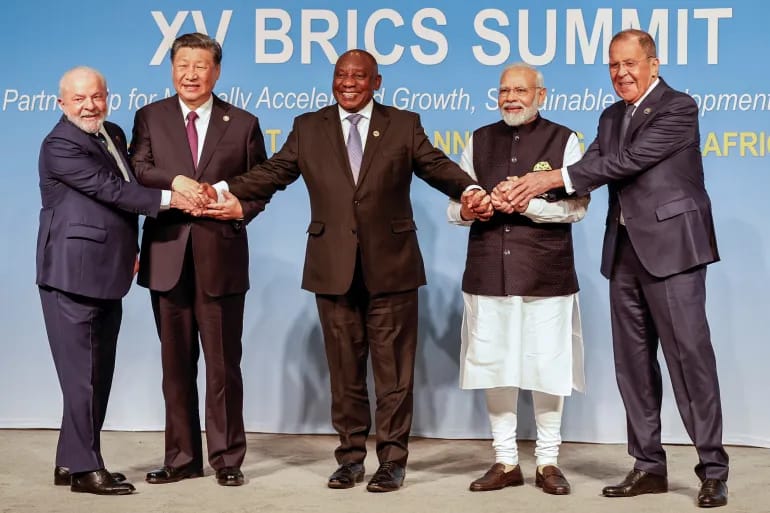The annual summit of major emerging economies concluded with a groundbreaking announcement: Saudi Arabia and Iran, along with four other nations, are set to become new members of the BRICS group. South African President Cyril Ramaphosa unveiled this significant expansion on the final day of the summit, underscoring the group’s aspiration to be a counterbalance to Western powers.
Historic Expansion and New Starting Point for BRICS Cooperation
During the three-day summit held in Johannesburg, leaders of the existing five major emerging economies – China, Brazil, South Africa, Russia, and India – achieved consensus on the foundational principles and procedures for the BRICS expansion process. This milestone development paves the way for a historic first phase, wherein Saudi Arabia, Iran, Argentina, Egypt, Ethiopia, and the United Arab Emirates will officially join the BRICS bloc as full members in January 2024.
Chinese President Xi Jinping applauded this move, emphasizing how it will inject fresh vitality into BRICS cooperation, bolstering the group’s role in global peace and development. Iranian officials, including a senior adviser to the president, expressed their delight at the country’s permanent membership, hailing it as a strategic triumph for Iran’s foreign policy.
Geopolitical Implications and Support from Diverse Nations
The inclusion of Saudi Arabia, the UAE, Iran, and Egypt marks a momentous shift for BRICS, as it now encompasses Middle East and North Africa (MENA) representation for the first time. Argentina’s addition was notably championed by Brazil. This expansion gained strong backing from Russia and China, who are striving to counter the challenges posed by Western sanctions through greater collaboration within BRICS.
Leaders from Ethiopia and other new member countries also voiced enthusiasm. Ethiopian Prime Minister Abiy Ahmed labeled it a remarkable moment for his nation, expressing readiness to contribute to a global order that fosters inclusivity and prosperity.
Challenges and Opportunities in Building a Stronger BRICS Entity
Ramaphosa revealed that the issue of expansion had been a central topic of discussion among the original five BRICS nations for over a year. The breakthrough came with a unanimous decision to invite the new members, signifying a pivotal step in the group’s ambition to reshape global governance into a multipolar framework.
While the expansion is hailed as historic, it poses challenges as well. The inherently diverse political and social interests of the member countries have at times hindered cohesive decision-making. Experts suggest that this diversification, although complex, could lead to more comprehensive discussions and solutions.
The announcement of Saudi Arabia and Iran joining BRICS, along with the inclusion of four other nations, marks a transformative moment for the group. As the BRICS community enters this new phase of expansion, its ambition to represent the Global South’s perspectives in the world arena gains momentum. The summit in Johannesburg concluded with leaders from over 50 nations affirming their commitment to building a more collaborative and influential BRICS entity.















